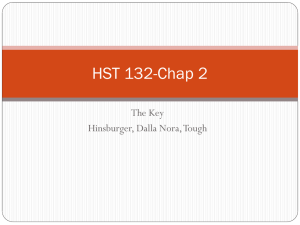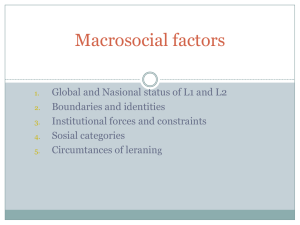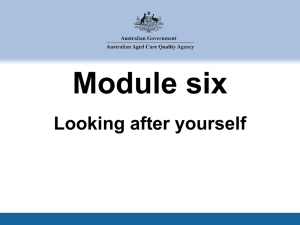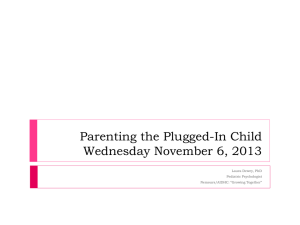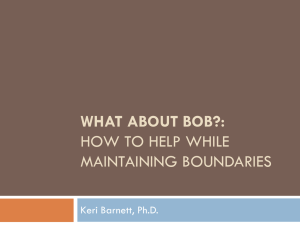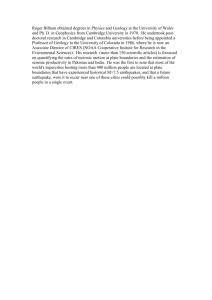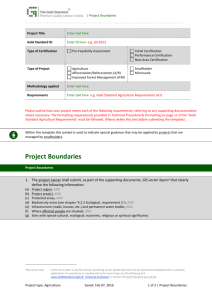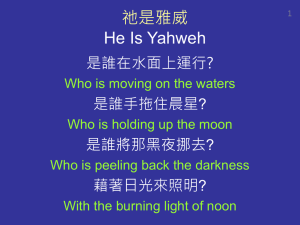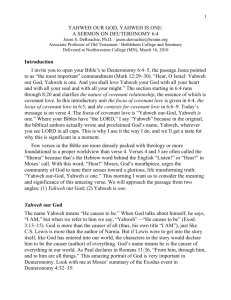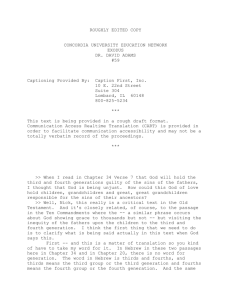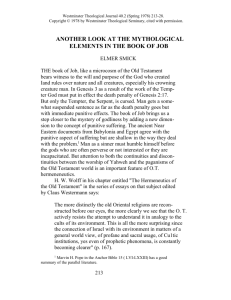The order of God and His redemptive work by Rev Stuart Simpson
advertisement
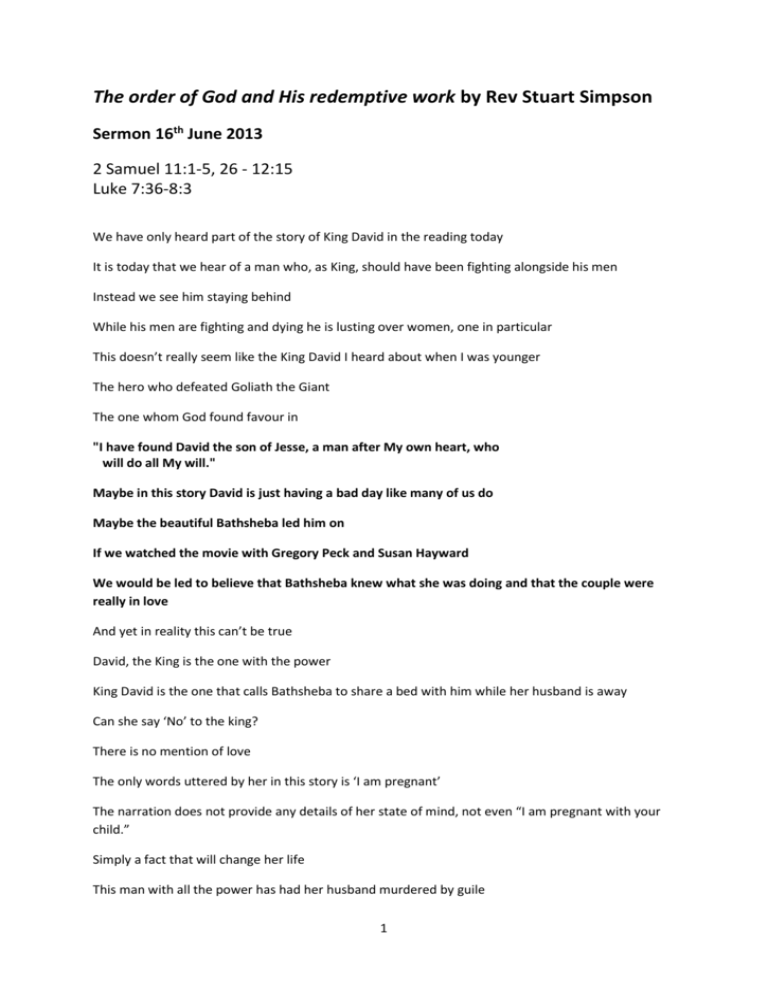
The order of God and His redemptive work by Rev Stuart Simpson Sermon 16th June 2013 2 Samuel 11:1-5, 26 - 12:15 Luke 7:36-8:3 We have only heard part of the story of King David in the reading today It is today that we hear of a man who, as King, should have been fighting alongside his men Instead we see him staying behind While his men are fighting and dying he is lusting over women, one in particular This doesn’t really seem like the King David I heard about when I was younger The hero who defeated Goliath the Giant The one whom God found favour in "I have found David the son of Jesse, a man after My own heart, who will do all My will." Maybe in this story David is just having a bad day like many of us do Maybe the beautiful Bathsheba led him on If we watched the movie with Gregory Peck and Susan Hayward We would be led to believe that Bathsheba knew what she was doing and that the couple were really in love And yet in reality this can’t be true David, the King is the one with the power King David is the one that calls Bathsheba to share a bed with him while her husband is away Can she say ‘No’ to the king? There is no mention of love The only words uttered by her in this story is ‘I am pregnant’ The narration does not provide any details of her state of mind, not even “I am pregnant with your child.” Simply a fact that will change her life This man with all the power has had her husband murdered by guile 1 And has lustfully raped her, making her pregnant No! King David made a mighty mistake and the consequences of that mistake will soon be played out What then are we to make of this story? I want to talk about how God has set up boundaries that if crossed cause certain consequences and yet at the same time God’s redemptive action continues I want to highlight that even with our freedom to choose to stay within those boundaries or go beyond them God is there God still loves And God acts to redeem Even within the consequences If we go back to the story We will first see in verse 27 that Yahweh does not act. Rather, “the deed” is subject to the verb. The deed did evil “in the eyes of Yahweh.” Yahweh does not act or move or intervene or assert himself He is simply there Bruggemann suggests that the eyes of Yahweh refers to the benevolent ordering of life which humankind can trust in, to which they are accountable and which they violate at great cost This order is reflected in the Torah and in the wisdom literature which tries to discern where the boundaries are which we much honour The boundaries are from Yahweh (God), but they are experienced in the process of life itself God does not capriciously adjust and modify them We can count on them because God is faithful David in this story has violated healthy social ordering which Yahweh guarantees And because of this he has now placed himself outside the protection of that ordering Therefore God is simply there but does nothing to punish the action of David The awful consequence of David’s choice is the death of his child dying I don’t know about you but I do find this part of the story pretty hard to swallow 2 Why should the death of the child be the consequence instead something should happen to David himself? First I’m sure the death of the child affected David deeply Second, if we agree that God has set up boundaries for our good and the good of society, can God simply step in and correct all the consequences of our actions and our freedom when we cross those boundaries? What kind of world would we live in if God simply ignored the rules and boundaries He put in place every time we decided to go our own way, seek our own pleasures abuse others David it seems knows what he had done when he is face to face with Nathan and hears the story He knows that in freedom he has chosen to go outside the protection of God’s ordering “I have sinned against the LORD.” There is no blame No anger at God Sure there is grief, grief at how his actions have hurt others But he does not shake his fist at God and cry out ‘How can you do this!’ He knows what he had done and in deep grief accepts the consequences of his action And yet the consequences don’t stop God’s redemptive action in the life of David and the nation of Israel God continues to redeem, right through David’s lineage, to the birth of Jesus Ultimately in Jesus, God steps into the world to redeem us all from the consequence of our choices God takes the consequences onto Himself If we bring these two things together First, that (Yahweh) God is there and sets boundaries and yet continues to redeem Second that David (and us) have freedom to live within those boundaries or not This is what we get 3 Yahweh is there as guarantor of order and maintainer of boundaries David and others in this narrative have enormous power and freedom to act, but they are not free to act as though Yahweh were not there He is there, and because he is there, there are givens and boundaries and limits which must be honoured the given is that the man intended to bring life (the king) is accountable if he brings death the given is that Yahweh’s promise, his will for life, outlasts foolish choices for death and therefore he loves the son born to this doubtful relationship 12:24 (Solomon) these are the theological boundaries and contexts in which life must be lived and no one can successfully transgress those boundaries Not David in his cunning lust Not even Nathan in his words of judgement There is an order and a given-ness which must be honoured and taken seriously And to affirm and accept these givens is faith And yet at the same time, even with some awful consequences, God continues to redeem So what does this mean for us today? It means that we live within certain boundaries, whether we like it or not, which are created by God so we can fullness of life It also means that if we choose, in our freedom, to step out of those boundaries, there will be consequences and for the most part God will not act Neither to punish or to take away the consequence And yet God continues to love, weep with us, laugh with us, comfort us, and ultimately save us from the consequences of being out of relationship with Him As God’s people let’s seek, in the power of the Holy Spirit, to live in the boundaries provided by God And in doing so we will hear God say to us “I have found these people, people after my own heart, who will do all my will.” Question: If we are the ones with the power and choose to use it in the wrong way what do we do with the consequences? 4
